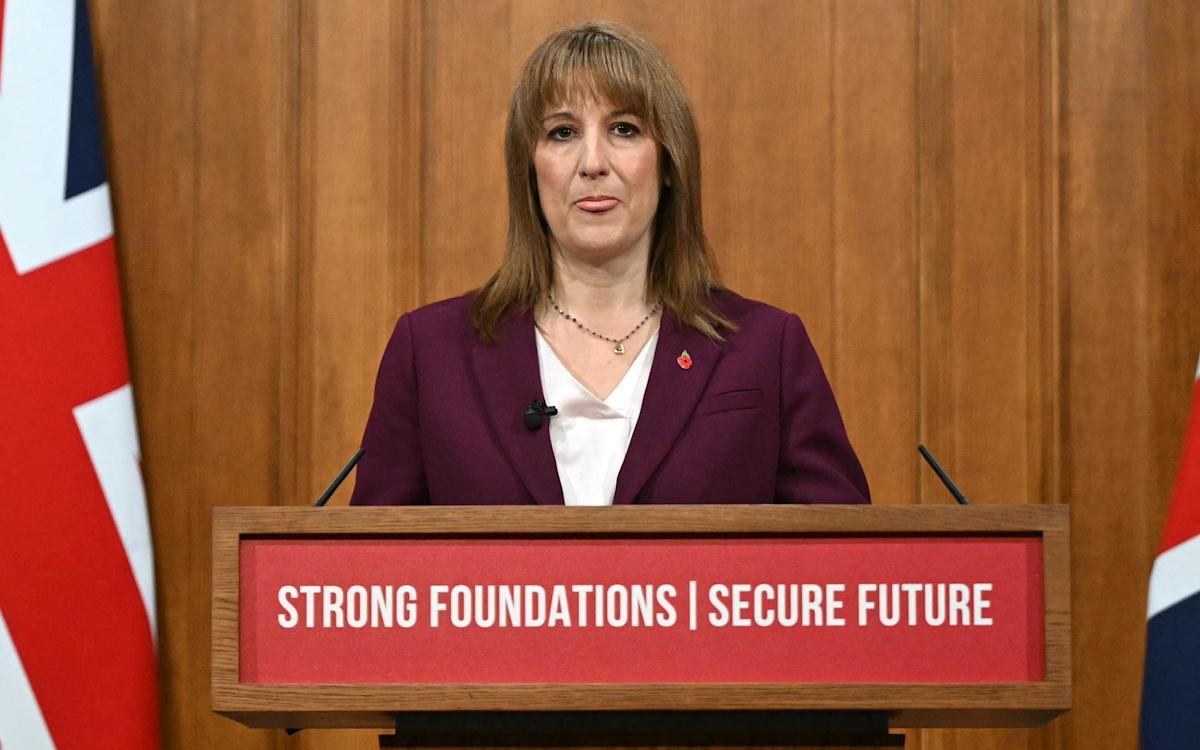Reeves warned she has squandered credibility with bond markets
Rachel Reeves has thrown away her credibility with the markets after scrapping plans to raise income tax, bond investors have warned.
The Chancellor’s “flip-flopping” and “kite-flying” has created caution and uncertainty in the gilt market, where traders set the interest rate she has to pay on government borrowing.
Investors have been left fearful that Ms Reeves’s about-turn on Friday over income taxes means her Budget on Nov 26 might fail to plug the deficit or kickstart the economy. The Chancellor had earlier signalled that she would raise income tax before unexpectedly abandoning the plans.
“The noise on Friday didn’t help credibility, and credibility is important when it comes to the gilt market,” said Matthew Amis, an investment director at money management giant Aberdeen.
“Rachel Reeves had managed to build up this credibility in the last six weeks. Investors liked what she was saying, international investors liked what she was saying.”
Now markets are concerned she is “kicking the can down the road, which has been the kind of theme of Budgets over the last couple of years and not really grasping the situation”, he said.
The yield on 10-year UK gilts – a benchmark for the cost of servicing the national debt – rose by 0.137 percentage points to 4.57pc on Friday. It marked the sharpest one-day rise in government borrowing costs since Ms Reeves was pictured crying in the House of Commons in July.
Evelyn Gomez Lietchi, a strategist at Japanese investment bank Mizuho, said the past week had made investors “nervous”.
“The worst thing is this whole back-and-forth with headlines, where you are left guessing on whether the measures that the Chancellor is going to do will be enough,” she said.
“We were being very optimistic and very bullish on gilts, just since the end of the summer … Right now, because we’ve had this very pronounced move, I would be cautious.”
Political uncertainty within the Labour Party has also added to the concerns of gilt investors. It comes after a briefing war broke out over alleged threats to Sir Keir Starmer’s leadership.
Wes Streeting, the Health Secretary, was forced to deny that he was planning a challenge to the Prime Minister’s authority. He called for the people behind “self-defeating” rumours to be sacked.
James Athey, a bond trader at fund manager Marlborough, said: “I think the market is going to have to price additional premium in the gilt market for potential changes to leadership in the relatively near future.”
Mr Athey said: “They [Labour] are beholden to Left-leaning or Left-wing members of their own party, and that is preventing them taking what are probably the more efficient and effective steps to balance the growth outlook with the fiscal sustainability issues.”



Leave a Comment
Your email address will not be published. Required fields are marked *